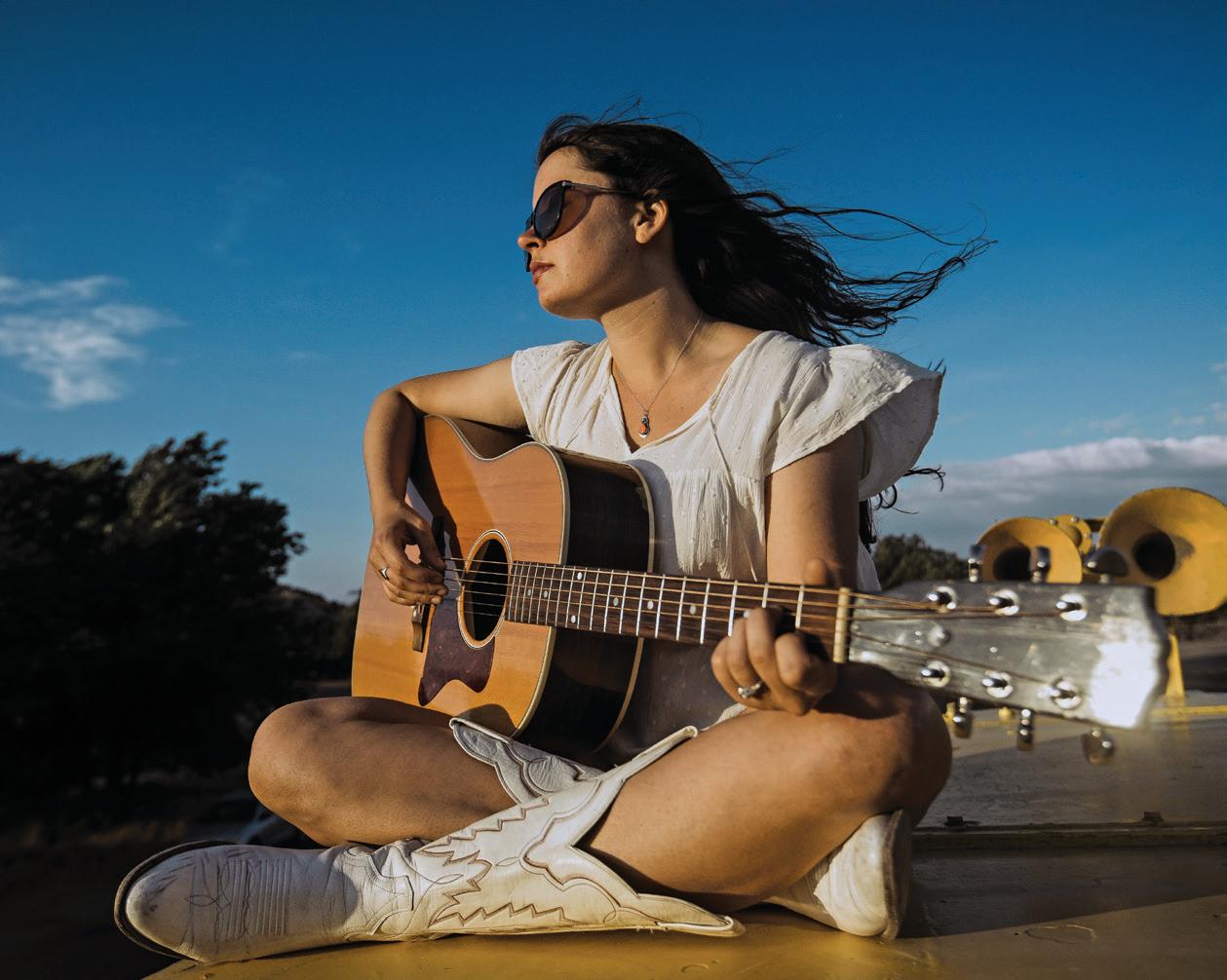
3 minute read
on the folk music scene
A SONGWRITER’S STORY
BY BRITA LONG ’09
Advertisement
HOW ONE WOMAN’S VOICE GIVES A VOICE TO OTHERS
MANY WORDS DESCRIBE EMILY SCOTT ROBINSON ’09. SOUTHERN WOMAN. FURMAN GRADUATE. AWARD-WINNING SINGER/SONGWRITER.
But the word that best describes her in all her roles, among all her talents, is storyteller.
“There’s so much power in people’s voices, in people’s stories. I think this is a really great privilege, to be somebody who can sing and who can tell a story,” Robinson says.
Her musical career has roots in her Furman days, when she started her freshman year as a music major in clarinet. While she dropped the major after a year, she does admit, with a laugh, that her handful of music classes laid the groundwork for the more technical aspects of her work as a singer/songwriter. When prompted for an example, she mentions A Year of Musical Theory.
“At the time, I moaned my way through [it], but I learned a lot that has been incredibly helpful for me as I’m writing music — like, just the ability to transpose things into different keys, quickly.”
Robinson also admits to expressing great annoyance while taking a Music Technology class. Mimicking her younger self, she exclaims, “Ugh! I am never going to use this … I can’t believe I have to learn to use a Mac … and Garage Band.” Today, she uses Garage Band to create all her own demos.
“My final Music Technology project was actually a recording I did with guitar and singing. I did it in Garage Band. I had to learn all the basics of recording, and now I wish I still had my textbooks from my freshman year at Furman,” she says.
What Robinson considered at that time to have been a detour, is actually incredibly helpful to her now.
After dropping her music major, she switched to a double-major in history and in Spanish, with a concentration in Latin American studies.
“I really believe that my history major is all sort of wrapped up in what I’ve always loved, which is storytelling. Analyzing stories from different perspectives — I’ve always loved that, and I think that’s one reason I’ve always been attracted to history,” she says.
Robinson’s Spanish and Latin American classes also contributed to her understanding of storytelling. Just as she once explored foreign language and culture through literature, she now reaches new audiences through her own storytelling: singing and songwriting.
“There are reasons why other people see the world differently than you do. What can you find that’s common? How can you venture your way into understanding their world? And explain the way you see an issue without instantly alienating somebody? I see telling the stories of marginalized people as a great way of doing that.”
Her talent for storytelling shines in her music. She writes her songs from a firstperson perspective, placing the listener inside the life and body of another person.
“Folk music is the music of the people. Folk and country need to be simple ... if there’s a story, it needs to be a clear story. If there’s an emotional arc, you need to build the tension up of the emotional arc, and then release it,” she says.
Some of Robinson’s work is inspired by her own life’s story. “Better with Time” is a love letter to her husband, recounting the early days of their marriage. “Westward Bound” is a collection of snapshots from her cross-country road trips over the years. In “Run,” a song about a woman leaving an abusive marriage, she doesn’t tell her own story, but she does draw upon her former experiences as a social worker. “Overalls” pays homage to a World War II veteran.
These are just four of the twelve songs on Robinson’s debut full-length studio album, Traveling Mercies. “Better With Time” is the first single off the album, now available on iTunes and Spotify. The full album releases in February, almost a decade after she graduated from Furman. She’s come a long way since then.





